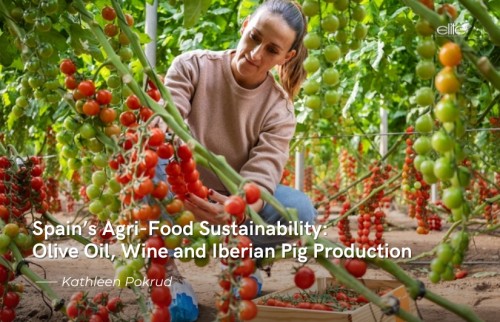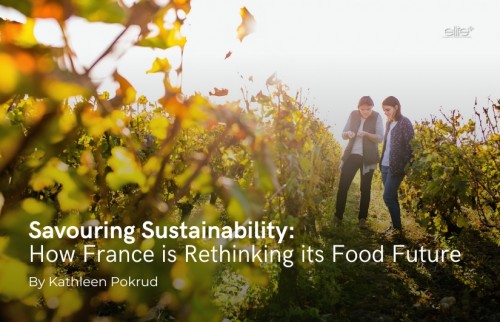To Be or Not To Be Vegetarian
Story by Dr Pisuth Lertvilai
There is so much controversy over whether being vegetarian is better for your health. While there is no absolute consensus, it seems worthwhile to take a closer look and try to understand the logic and details behind and beyond vegetarian culture.
A closer look at biological classification based on eating habits is based on dental arrangement, or how teeth are categorised by the food we consume. In general, there are three types of food consumed by animals, meat of the carnivorous, plant for the herbivorous and a combination of both meat and plant for the omnivorous. Carnivorous animals such as tigers have only blade or wedging teeth that they use to cut the meat of the animals they catch. The carnivorous could not survive by eating plants as their biological foundation, their dental arrangement, prevents them from ingesting greenery. On the contrary, the teeth of herbivorous animals such as cows are crunching molars, flat with wide surfaces to grind the vegetables they ingest. These animals do not have the capacity to eat meat as their teeth cannot tear the meat fibre into small pieces. Human beings, considered the most advanced living creature on the planet, possess both dental categories, the wedging or blade and the grinding teeth and molars, which imply that humans can eat either meat or plants as we have both types of food cutting equipment in our mouths. However, should we take a closer look, we also find that humans have more grinding molars than blading teeth, which then implies that humans should consume more greens and vegetables than meat, possibly in a 60:40 or even 70:30 ratio. By consuming this plant-meat proportion, we can expect better health in general based on our physical dental traits.
Still, many believe being a vegetarian will provide a more positive impact on our well-being. There are various reasons why people adopt a vegetarian diet, health benefits, environmental concerns, or religious or ethical beliefs.
Focusing on health benefits, there is substantial research supporting vegetarianism. When it comes to body weight, it’s been found that vegetarians tend to eat less food compared to those who eat an animal-based diet. Furthermore, their blood testing parameters in general show better results for sugar and cholesterol levels as well as other lipid profiles and kidney and liver efficiencies. In general, the lifestyle of vegetarians can be described as healthier, as they normally consume higher quantities of vegetables, fruits and cereals while consuming less sugary drinks and fastfood. They also may have a greater willingness to engage in physical activity, especially during their leisure time compared and get more adequate sleep to those who eat meat,
There are also consumers who believe one shouldn’t kill animals for food as they have felt shock or after after they have seen animals slaughtered while plants do not feel such emotions when consuming plants, therefore, enjoying more peace of mind when following a plant-based diet.
When it comes to religious belief, in many Asian countries where those of Chinese origin live, they pay homage to the Guanyin goddess by following a vegetarian diet at all times or at least periodically. Many meat eaters, thus, will ingest only vegetables during the October vegetarian festival.
We should also understand that there are actually many types, or levels, for those who want to follow vegetarian practices to fit certain lifestyles and and eating habits. Some are quite restrictive while others are more flexible. First, a vegan will not consume any animal products or by-products at all. Not only will they not consume red or white meat, fish or fowl, but they will not consume eggs or dairy products. This practice includes not using honey or beeswax, gelatine or any other animal by-product. Moreover, vegans typically do not use items derived from animal products such as silk, leather or wool. The second group called the Lacto-vegetarians will not eat red or white meat, fish, fowl or eggs, but still consume dairy products such as cheese, milk and yogurt while the third group, called Ovo-vegetarians, will not eat red or white meat, fish, fowl or dairy products, but will consume egg products. Then, Lacto-ovo vegetarians will not consume red meat, white meat, fish or fowl, but will consume dairy and egg products. Finally, the Lacto-ovo vegetarian type, the most common, is the least difficult to adopt. Now, when vegetarian while also practicing some canivory, Pescatarians will restrict their meat consumption to fish and seafood only. Pescatarians do not consume red meat, white meat or fowl. Thus, these people can be considered “semi-vegetarian”. The last group of vegetarians is called Flexitarian, who with their plant-based diet will occasionally include the meat in their menu. These consumers do their best to limit meat intake as much as possible, and they have an almost entirely plant-based diet. This is not technically considered a vegetarian diet, but we can appreciate their effort in this respect.
To conclude, we have looked at why some people choose to eat vegetarian. However, there are some precautions that should be considered as well. This concern is based on health as vegetarians tend to have specific deficiencies such as vitamin B12 and vitamin D as well as elevated homocysteine levels, which may be attributed to a lack of vitamin B12 intake as these nutrients mainly come from meat sources. Therefore, a vegetarian should take supplements of vitamins and minerals to compensate for these deficiencies.
Being a vegetarian is a choice that is not difficult to pursue. Many people can do it without any issue while others might encounter some problems. If a strict vegetarian diet does not align with your lifestyle or what you value, do what is best for you. There is a variety of vegetarian diets to try and experiment until you find the best fit for who you are.






































































































































































































































































































































































































































































































































































































































































































































































































































































































































